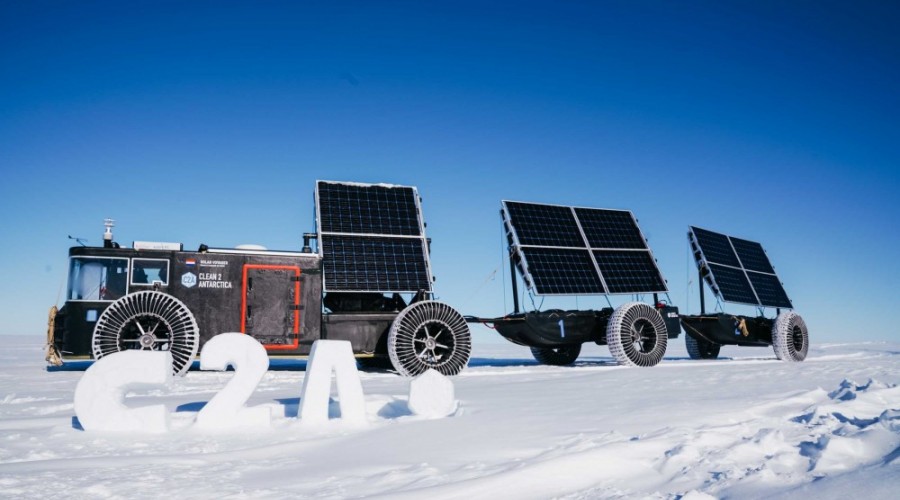"Why Antarctica? Do you have any idea about CO2 tax?"

"You are investing in energy saving, but are you going to fly yourself? Producing, transporting, these costs so much energy, and what is the message? Have all our plastic melted in the garage into an inferior product? I don’t understand that there are no experts who will whistle you back.”
Critical questions and comments may be also be there and we are happy to answer them. We therefore devote a blog to it.
The purpose of Clean2Antarctica is to show what you can achieve by changing your mindset. Waste is not worthless but valuable. We have shown that you can drive fossil free on Antarctica for 30 days, in a car made of waste plastic. The project is not perfect, and we would prefer no emission at all. Unfortunately, this is not yet possible in the current society. The point is that you try to do as much as possible. For example, together with Arctic Trucks, we will compensate the CO2 tax of flying by planting trees on Iceland.
Proven the contrary
Through an educational program called ‘urban mining’ we have picked up plastic from the streets with children from various primary schools. This plastic has been used to build the Solar Voyager. By means of 3D printers we have made building blocks of which the body of the car is build. Many from the industry told us that this could not be possible, it would not be a high-quality material. We have proven the opposite. The ultimate goal is to take steps through social innovative experiments to create a circular society, which is all about Zero Waste. Everyone must contribute to this: consumers, industry, and government. It is therefore not the intention that people make low-grade products from the waste plastic or that the plastic gets incinerated. The project is not necessarily about energy saving, but about the waste problem. That is one of the major causes of many environmental problems.
With the building the Solar Voyager we have stimulated many companies to apply Zero Waste themselves and gave them the chance to start experiments from within their own companies. Consumers also feel inspired to take steps at home. We try to inspire consumers, industry, and government to come up with solutions and not just let them keep talking and pointing. Just get started! With the sailing trip the Quest for Change this idea has worked out well and the participating companies have effective solutions to get started. They have taken the first step.
Why Antarctica?
Why all the way to Antarctica is a question that is often asked. This choice has several reasons. First of all, we want to reach as many people as possible with this project. A round through Amsterdam would not yield the same media range as we have now. Impact is important. In addition, we conducted three studies on Antarctica and the Solar Voyager is a concept car for Arctic Trucks that guide the expeditions there.
‘Good business, but tipping point is still far away’
Why experts do not whistle us back? Perhaps the critical experts have not yet commented on this project. This professor of sustainable entrepreneurship at Radboud University is. Jan Jonker, professor of sustainable entrepreneurship at the Radboud University in Nijmegen, is impressed by the South Pole journey of Edwin and Liesbeth ter Velde.
"I think it’s brave of these people’. They deserve a big compliment, and I hope they come back safe and sound. I absolutely stand behind every activity that makes people more aware of our careless use of raw materials. Yet it is a good thing , because if every day attention is paid to the problem, we will hopefully also become more sustainable in the long run. My advice to Clean2Antarctica: spend half of your time, energy, and budget on publicity- creating attention among the target group you want to achieve- and embedding: making the message that we have decrease waste. Because it is true that the government and businesses can and should do more, but then it is important that the consumer realizes that better recyclable or compostable packaging must also be paid. We are working on making our waste more sustainable, but we have also become addicted to it. The biggest enemy for sustainability is that we do not pay the real price in many areas."
Critical questions are more than welcome, so if you have one ask ahead. But we would also like to ask you a question. What do you do yourself to contribute to the environment?
Support Zero Waste!
With your help we can inspire and activate people and companies to see plastic not as waste, but as valuable resource.
